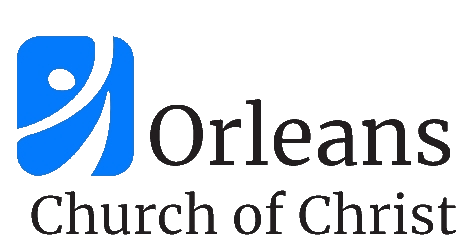Song Books
By Gary L. Fiscus
I have followed with some interest the debate on different song books; the need for them, the cost of them, the hymns in them. It got me to thinking about my life in the church of Christ, even from when I was born in 1946. Up to that date, several composers and publishers had edited and produced various hymnals for churches of Christ.
The Christian Hymns No. 1, written by Lloyd Otis Sanderson, came in 1935. In 1937, Great Songs of the Church No. 2 was a revision of Sanderson’s book and edited by E. L. Jorgenson. Some other hymn books were published in the fifties, e.g., The Majestic Hymnal No. 2, Hymns of Praise, Christian Hymnal, and Abiding Hymns. In 1965, The Great Christian Hymnal No. 2 was published. Most common in my youth were Great Songs No. 2, the Christian Hymns, No. 1, No. 2, and No. 3. In the 1970’s tradition seemed to wane, and more upbeat and flashy songs were added to new hymnals.
Over the years, a mixture of songbooks was used by various congregations. For the past several decades, I have been with congregations that used Ellis J. Crum’s Sacred Selections for the Church. In 1971, Alton Howard published Songs of the Church. Seven years later, V. E. Howard compiled Gospel Songs and Hymns with a revision in 1983. In 1986, Forrest H. McCann edited Great Songs.
Move to 1987. Brother R. J. Stevens published Hymns for Worship. That book has been continuously revised for all practical purposes. In 1990, Alton Howard distributed Songs of the Church, 21st Century Edition.
In 1992, John Wiegand edited Praise for the Lord, and in 1994, Alton Howard, again, published Songs of Faith and Praise. While there have been other hymnals published, the above set forth a premise upon which I want to build, and that is that in every case, I have no doubts that brethren were concerned for scriptural accuracy, literary excellence, respect for the Lord, a high quality of music and lyrics, morality, and appropriateness. Evidence of this is a quotation from L. O. Sanderson, “I’ve spent my life trying to get good music in the church.” I do not doubt that he was sincere.
A modern approach by brethren to songs we sing is the addition of what some call Praise Songs. Others refer to them as Camp Songs. Is there anything wrong with these pieces? No, unless they make a sole appeal to something other than spiritual effects. I mentioned above John Wiegand’s Praise for the Lord. Forrest McCann stated this observation: “Some of these songs may well live, but it seems questionable to fill standard hymnals with what may prove to be ephemeral (short-lived) production.” I hasten to say that brother Steven’s Hymns for Worship seems to have a good balance of “songs, hymns, and spiritual songs” (Ephesians 5:19).
Regarding hymnbooks today, Forrest McCann wrote, “At the end of the 20th century, many changes have occurred in American church songs. We are rearing a generation of future church leaders who will be unaware of the historic hymns and therefore, will not care about such. If this evaluation is correct, we may find ourselves again out of the mainstream of Christian songs.” You may agree or disagree with this observation, but it is worth noting.
Why did I write this article? As I stated at the beginning, I am reflecting on church hymn books that have been offered in my lifetime, 78 years. These hymnals have had their pros and cons, their doctrinal emphasis and praising of our Lord, each song in its own way. The key is that it is SINGING that should be the focal point of our worship, not what book we use. There have been church song books with Christmas songs, false doctrinal teachings, and even inaccuracies in the librettos when trying to convey a scriptural thought. Song books are written by men and women who in their own respect for Jehovah, composed, edited, and published words that they felt best conveyed a spiritual offering to God. [This article was edited for space. MJD]
